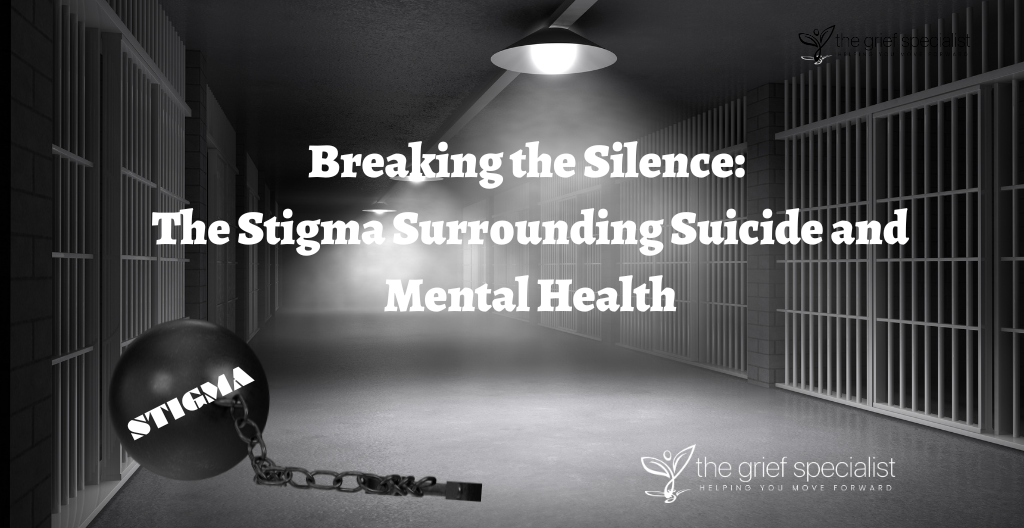My son died by suicide. I didn’t see it coming. Friends and family had no warning. All of us were surprised. The first few weeks after his death, I was in a state of shock. I functioned on autopilot as family members were notified, funeral arrangements made, cremation determined. I don’t remember much about what happened during that time. I felt like I was living in a dream – no, not a dream, a nightmare with no escape. I kept asking myself why? Why did he not talk to me? What was so bad in his life that ending it was his only solution? What should I have done differently?
I was not new to suicide. My 16-year-old niece, my oldest daughter’s best friend, and another one of her classmates – all died by suicide. I don’t remember how I felt about suicide as a means of dying. I just knew these beautiful human beings took their own lives.
I spoke openly about how my son died. Vulnerability, honesty, and courage were going to be key in my ability to accept his death and live through the nightmare. My honesty backfired though. Out of nowhere, I was blamed for his death and my love and caring as a mother was questioned. His mental health was exposed and put on display like Michelangelo’s statue of David, examined from all angles, looking for the slightest of flaws. I didn’t like that my son’s life was being picked apart and questioned.
I never understood the stigma of suicide until it happened to me. I was hurt and stunned that others were shunning me – for something my son did – that he killed himself. He chose suicide. I didn’t force him to do anything. I could not control what he thought, said or did. He was 24 years old. He had a mind of his own and made his own decisions.
What is Stigma?
Stigma surrounding mental health and suicide is widespread in Western society and often burdens suicide loss survivors above and beyond normal grief. It can lead to people distrusting, shunning, or avoiding those who have been affected by suicide and can have enduring, if not permanent, effects on survivors. The stigma of suicide can be lethal if it is not properly addressed.
As a suicide loss survivor suffering from the stigma of suicide you might experience any of the following emotions:
- Feeling damaged
- Feeling week
- Feeling vulnerable or very closed
- Not speaking up for yourself
- Feelings of embarrassment, diminishment, or self-hatred
- Painful
- A reduction of self-esteem and self-worth
- Hopelessness and shame
- Isolating
- Frustrating
- Unfair
- Upset
- Angry
- Lonely
- Misunderstood
Suicide, Sin and Salvation
I was told that suicide is a sin, an unforgivable sin. Christianity has a long-standing position that suicide is morally wrong. On the issue of suicide and salvation, Christianity is divided. These beliefs have likely impacted the level of stigma associated with suicide losses, suicide attempts, and suicide survivors within Christianity. Stigma can easily push people away from caring communities of support and from God. There is little doubt that Christianity has contributed to the stigma of suicide, at a time when support and caring is needed the most.
I was not sure if my son believed in God. He frequently spoke about the “universe” being his guiding light yet also believed there was some sort of higher power that could not be explained. At his funeral, the pastor offered an explanation to the possibility of my son’s salvation. In the final split seconds, between life and death, there was time for him to accept that God exists. That was something that happened between him and God. My son could have asked for forgiveness and God being the good and loving God that he is, forgave my son in those few moments. My son was welcomed with grace and loving arms.
Is Suicide Illegal in the United States
I was also told that my son “committed suicide”, that suicide was a crime. Historically suicide has been considered a crime however it is now regarded as a “common law felony” which can prevent the relatives of the deceased suicidal person from recovering damages in a lawsuit or receiving life insurance benefits.
Legal action may not be taken against you if carry out an attempted suicide. Even though it is not legal, it can’t be termed as illegal. It, therefore, suffices to say that you would not be arrested and sent to jail for attempting to kill yourself. However, standard protocol after a suicide attempt is to be arrested and admitted to a psychiatric unit for three days of observation. This holding period is used to evaluate your mental health. If after those three days, you have progressed, you can be released, however if progress is not seen, you may be held longer.
Tools for Overcoming Stigma
- Have open and honest conversations about suicide prevention and awareness
- Learn about mental illness and choose facts over myths
- Recognize that many of us will experience a mental illness at some point in our lives, and someone who has been diagnosed with a mental illness isn’t so different from you.
- Speak and act from a place of compassion and acceptance, rather than fear and ignorance.
- Refrain from saying “committed suicide”. Instead say “died by suicide.”
#mentalhealth
#suicide
#stigma
#suicidepreventionawareness
#livelovelaugh
#suicide
#stigma
#suicidepreventionawareness
#livelovelaugh




